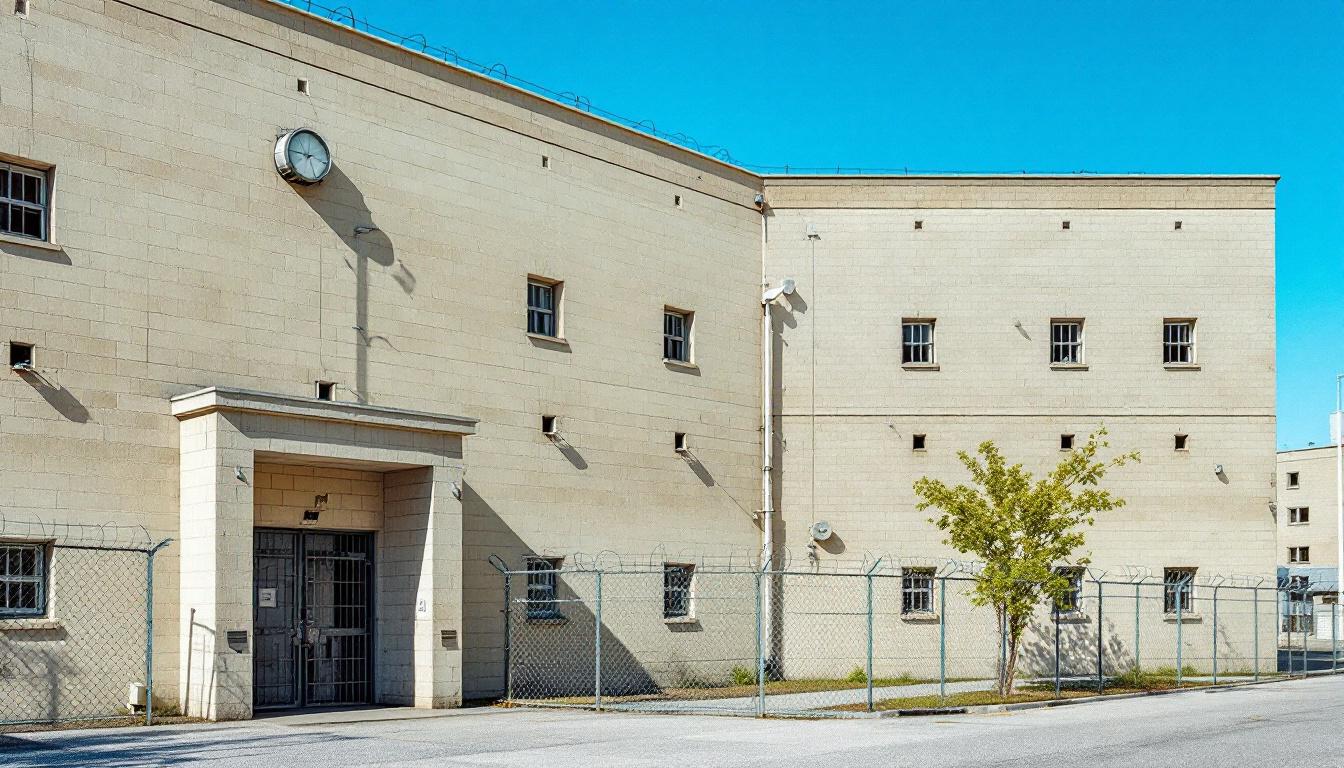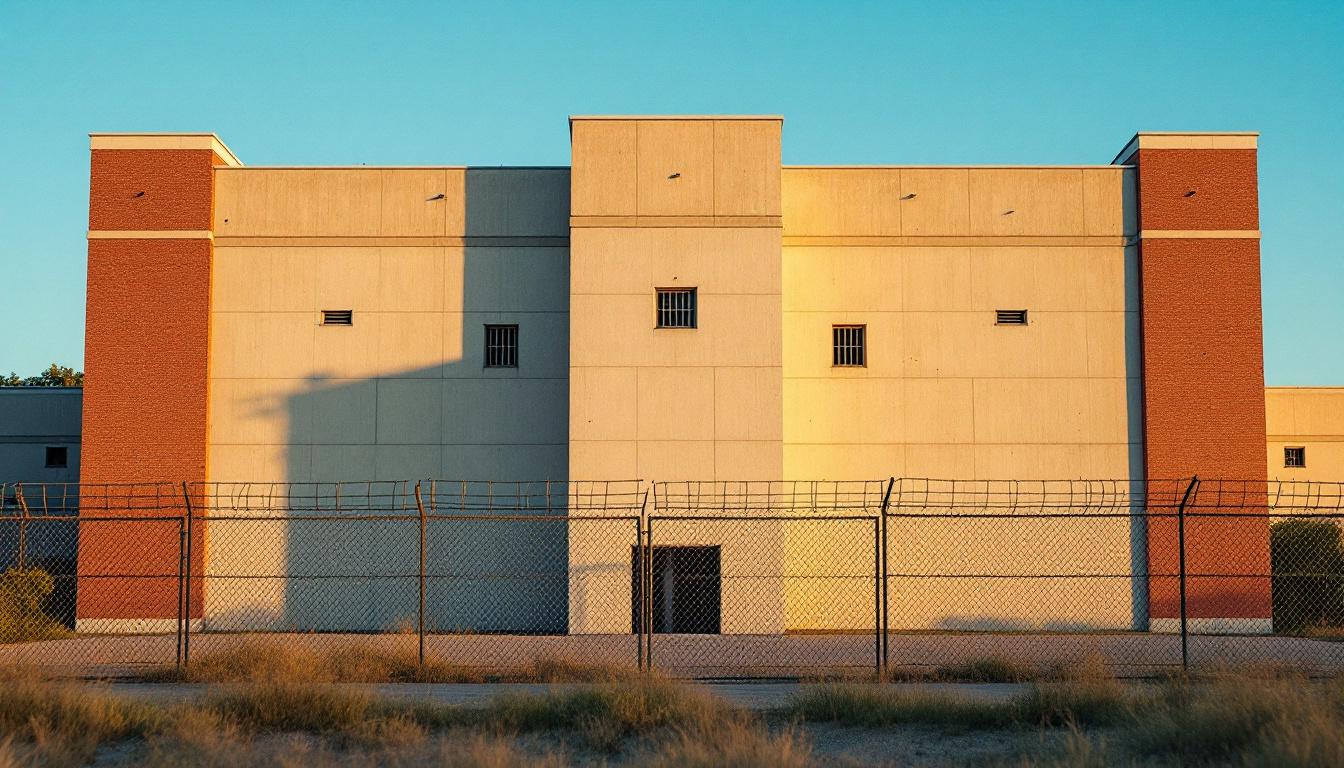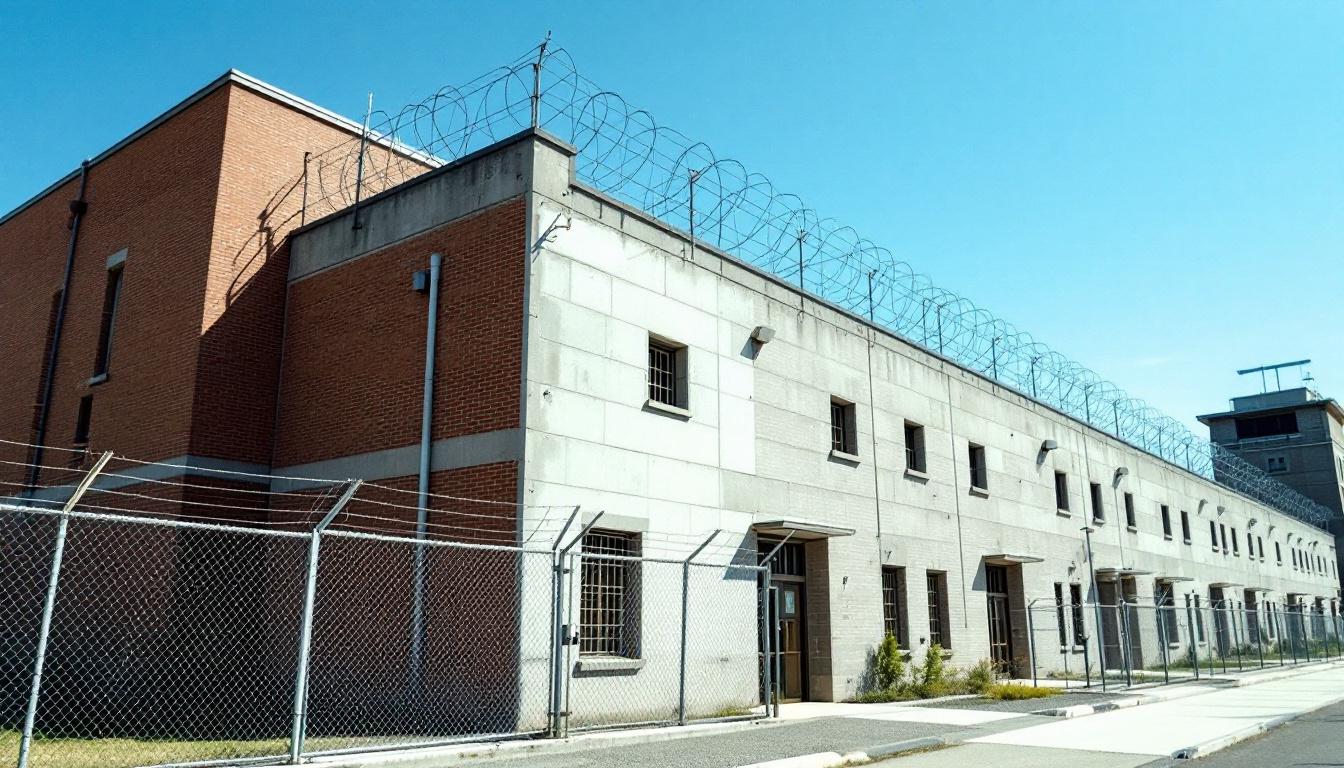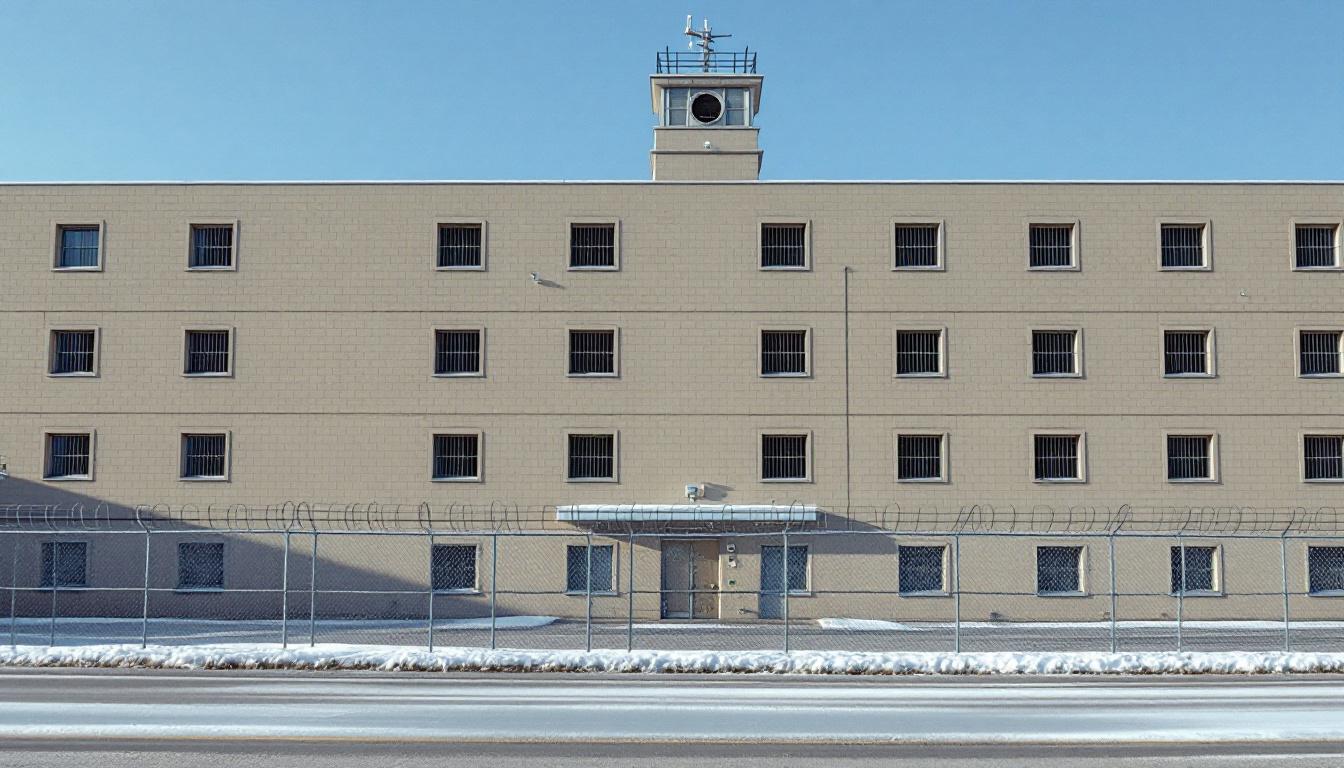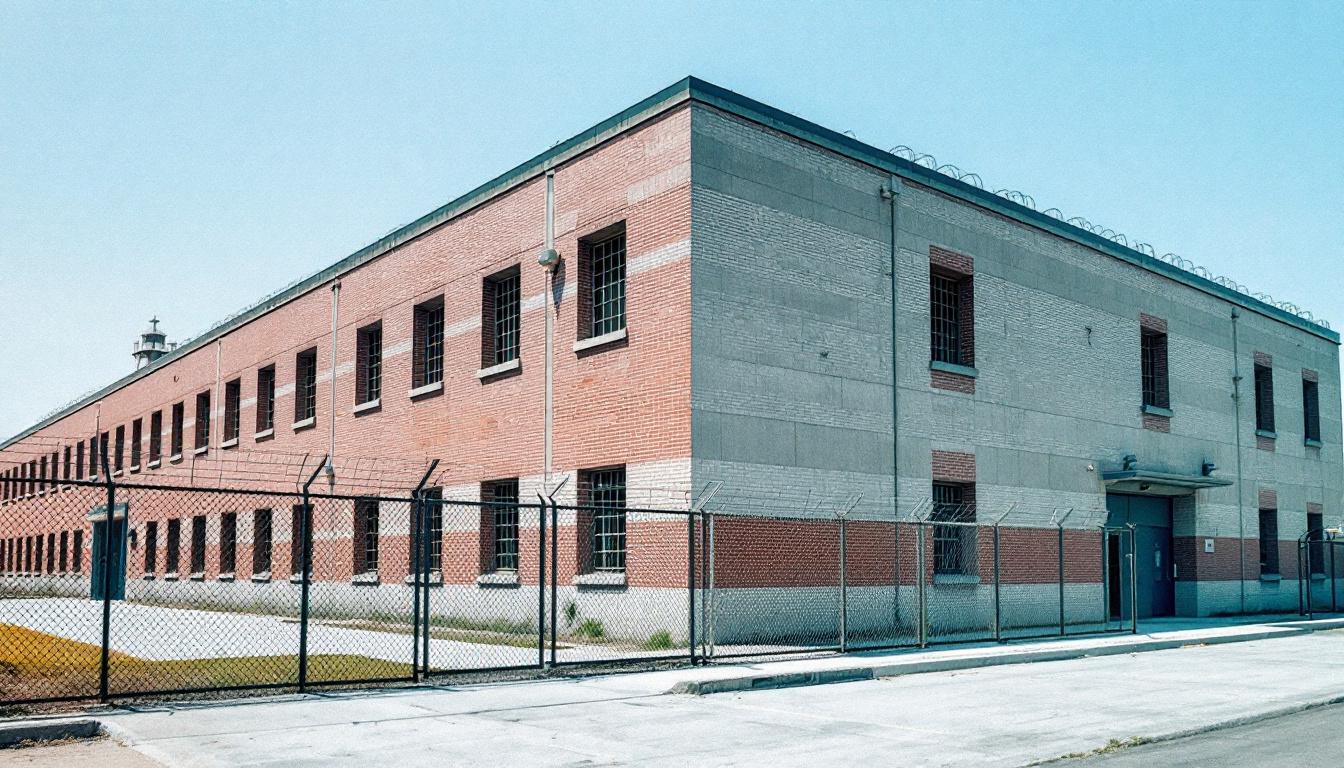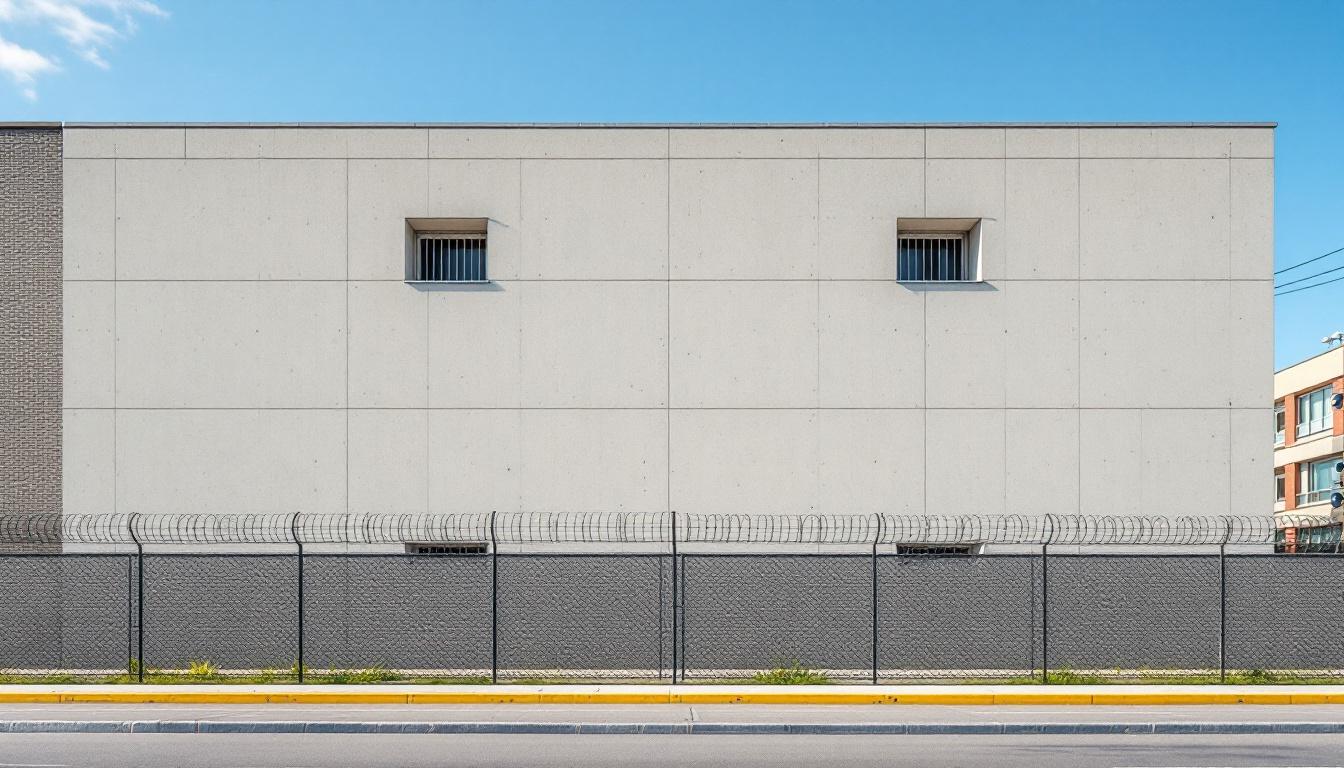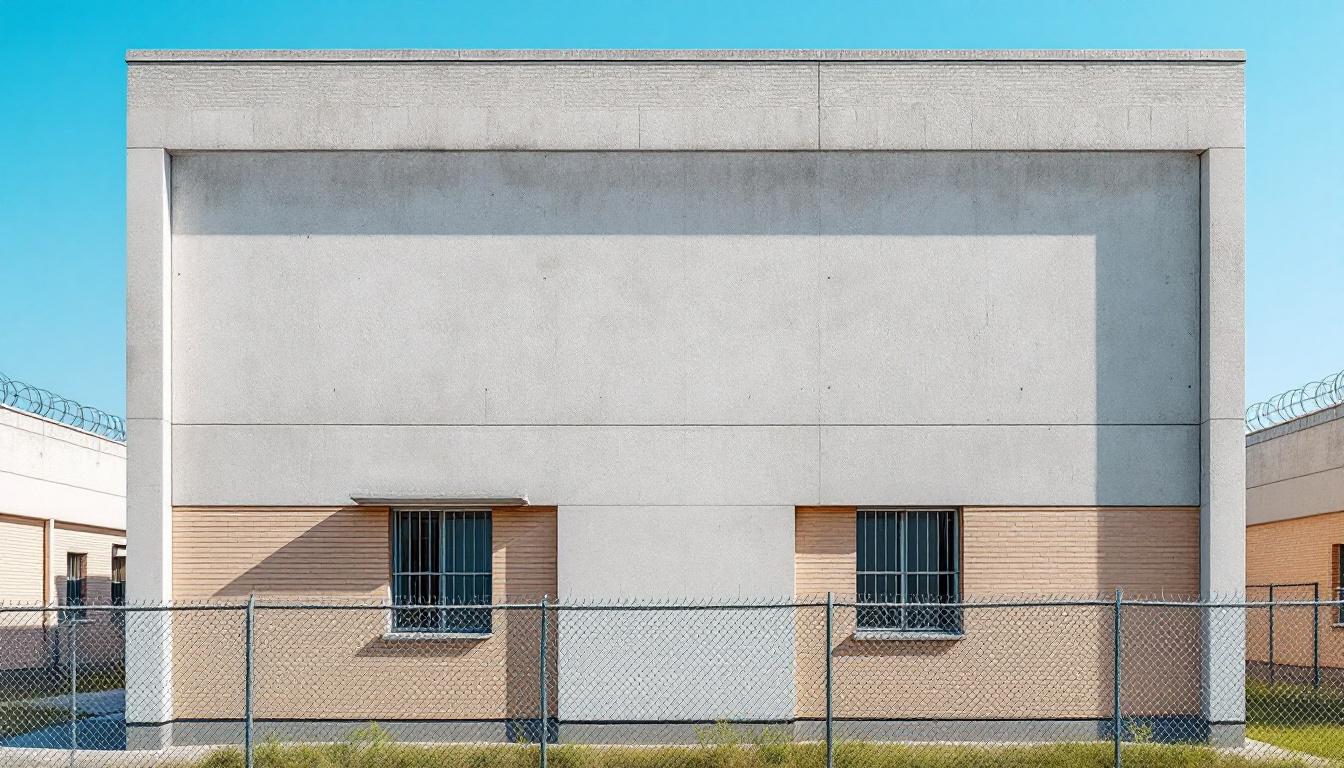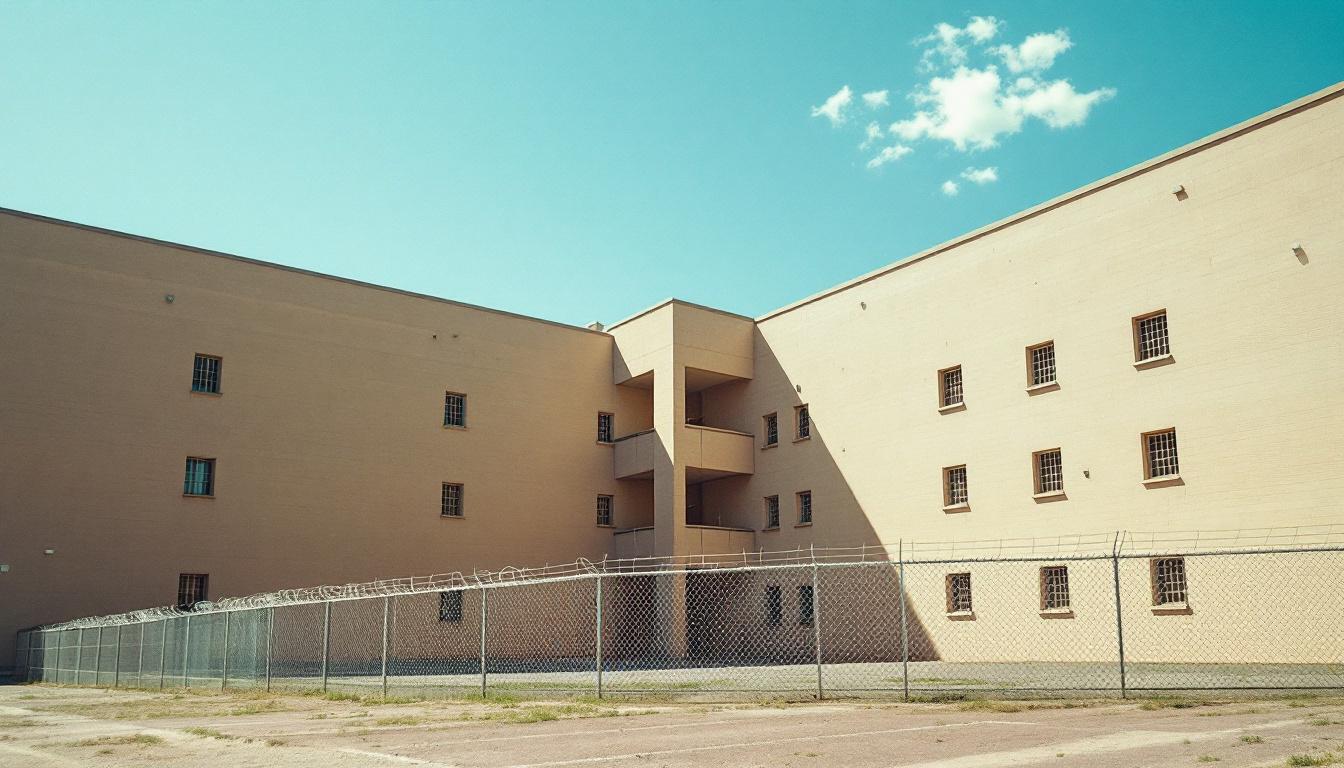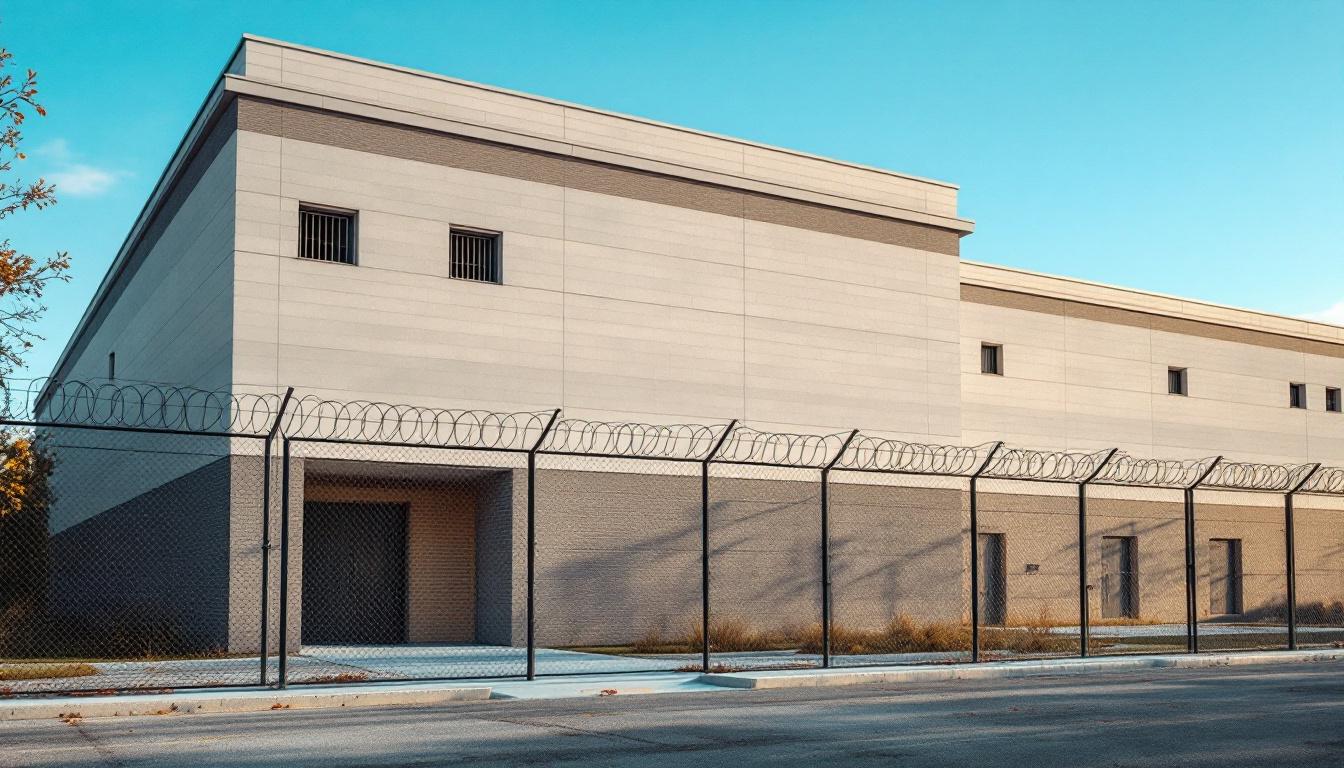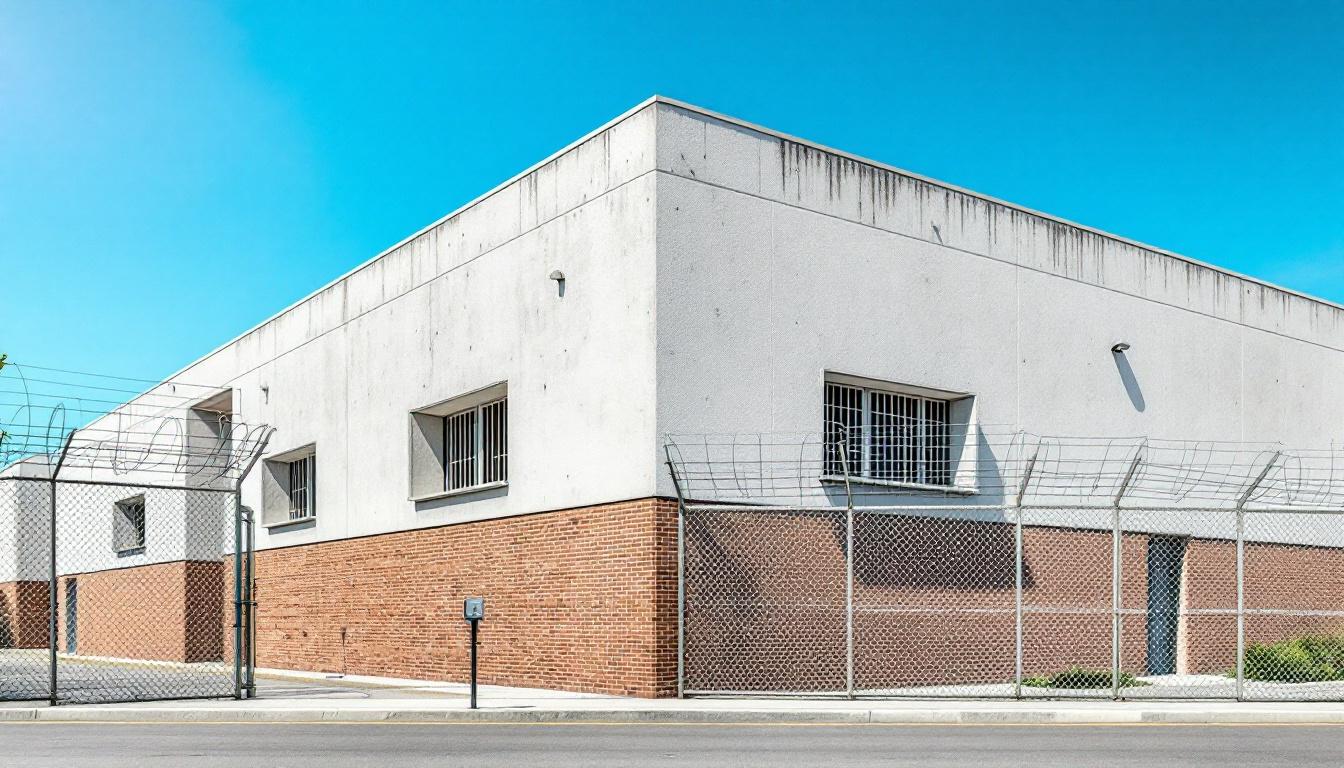
Quick Navigation
How to contact an inmate at Madison County Detention Center
This comprehensive guide will walk you through how to connect with an inmate at Madison County Detention Center. Follow the steps below to find an inmate and send letters and photos:
- Search for the inmate using our search tool below
- Create your account or log in to Penmate
- Write your message (up to 6,000 characters)
- Send instantly - inmates receive printed copies daily
Find an Inmate
Search for an inmate to start communicating today
Tip: You can search by first name, last name, or inmate ID number
To contact a person at Madison County Detention Center start by searching for the person on the official facility website. Perform a search by following these steps:
- Step 1: Enter their first name and last name into the search form and click "Search"
- Step 2: Locate their inmate record
- Step 3: Write down their Inmate ID and any housing information provided
Important! Be sure to enter the person's full name. Nicknames should not be used.
How to Send Messages to Inmates

You can use your phone or computer to send emails, letters, and photos to an inmate. Messages are sent electronically to inmate tablets or kiosks at the facility. If you would like to send a message, start by searching for an inmate at Madison County Detention Center.
Sending Photos and Postcards

A great way to send love and support to a loved one at Madison County Detention Center is to send photos and postcards. It only takes a few minutes to send photos from your phone and it makes a huge difference. You can also mail postcards with words of support and inspiration, or design your own postcard for special moments like birthdays and holidays.
Important! Be sure not to send any explicit photos or they may not be approved by the facility. You can also use a photo printing app like Penmate to make sure your photos are printed at the correct size (4x6 or 3x5) and are mailed according to the rules and regulations of Madison County Detention Center.
Frequently asked questions about Madison County Detention Center
-
How long does it take to deliver a message?
If you're sending an email message your letter is usually delivered within 24-48 hours. For messages sent via mail you should expect delivery within 3-7 days. All messages will need be approved by Madison County Detention Center.
-
How much does it cost to send a message to Madison County Detention Center?
You can send a message free using your phone or mail a message via USPS for the price of a $0.60 stamp and envelope. You can also purchase credits or e-stamps from services starting at $1.99.
-
What services can I use to contact an inmate at Madison County Detention Center?
Penmate
You can use Penmate to send letters and photos to an inmate from your phone. It's an easy way to stay in touch during your loved one's incarceration. Use the inmate locator to find an inmate's location and contact information, then you can send messages within a few minutes.
Securus messaging
Securus may be another option for communicating with an inmate at Madison County Detention Center. You can create a friends and family account and purchase credits to send messages. All messages will be reviewed and must be approved by the facility.
JPay
Some county jails and state prisons may support sending messages with JPay. You must register an account with the system, find your loved one, and purchase stamps to send messages. For some locations you can also attach photos.
Smart Jail Mail
You may also check if Smart Jail Mail is available at Madison County Detention Center. Smart Jail Mail is operated by Smart Communications and has contracted with some state and county jails. After purchasing credits, your messages and photos are sent to the facility, printed out, and then handed out to your loved one.
-
What is the mailing address of Madison County Detention Center?
Mailing address:
Madison County Detention Center
107 W Irvine St
Richmond, KY 40475
Phone: (859) 624-4710Business hours:
- Monday: 8:00 AM – 4:00 PM
- Tuesday: 8:00 AM – 4:00 PM
- Wednesday: 8:00 AM – 4:00 PM
- Thursday: 8:00 AM – 4:00 PM
- Friday: 8:00 AM – 4:00 PM
- Saturday: Closed
- Sunday: Closed
-
What are the visiting hours at Madison County Detention Center?
Visiting hours at Madison County Detention Center vary by housing unit and security level. Generally, visits are scheduled on weekends and holidays, with some facilities offering weekday visits. Contact the facility directly at (859) 624-4710 or check their website for the current visiting schedule. Visits typically last 30-60 minutes and must be scheduled in advance.
-
What items are prohibited when sending mail to Madison County Detention Center?
Prohibited items typically include: cash, personal checks, stamps, stickers, glitter, glue, tape, staples, paperclips, polaroid photos, musical or blank greeting cards, hardcover books, magazines with staples, and any items containing metal or electronics. Only send letters on plain white paper with blue or black ink. Photos must be printed on regular photo paper (no Polaroids). Always check with Madison County Detention Center for their specific mail policies.
-
How do I send money to an inmate at Madison County Detention Center?
You can send money to an inmate at Madison County Detention Center through several methods: 1) Online using JPay, Access Corrections, or the facility's approved vendor, 2) Money orders mailed directly to the facility with the inmate's name and ID number, 3) Kiosks located in the facility lobby, or 4) Over the phone using a credit or debit card. Fees vary by method, typically ranging from $2.95 to $11.95 per transaction.
-
Can I schedule a video visit with an inmate at Madison County Detention Center?
Many facilities now offer video visitation as an alternative to in-person visits. At Madison County Detention Center, video visits may be available through services like Penmate, Securus Video Connect, GTL, or ICSolutions. Video visits typically cost $10-20 for 20-30 minutes and must be scheduled in advance. You'll need a computer or smartphone with a camera and reliable internet connection. Contact the facility for their specific video visitation policies and approved vendors.
-
What identification do I need to visit an inmate at Madison County Detention Center?
All visitors must present valid government-issued photo identification such as a driver's license, state ID, passport, or military ID. Minors must be accompanied by a parent or legal guardian who can provide the minor's birth certificate. Some facilities require visitors to be on the inmate's approved visitation list, which may require a background check. Contact Madison County Detention Center for specific ID requirements and visitor approval procedures.
-
How can I find out an inmate's release date?
To find an inmate's release date at Madison County Detention Center, you can: 1) Use the online inmate search tool if available, 2) Call the facility's records department, 3) Contact the inmate's case manager or counselor, or 4) Have the inmate provide this information during a call or visit. For privacy reasons, some facilities only release this information to immediate family members.
Facility Overview
Contact Information
Madison County Detention Center107 W Irvine St
Richmond, KY 40475
Phone: (859) 624-4710
Official Website
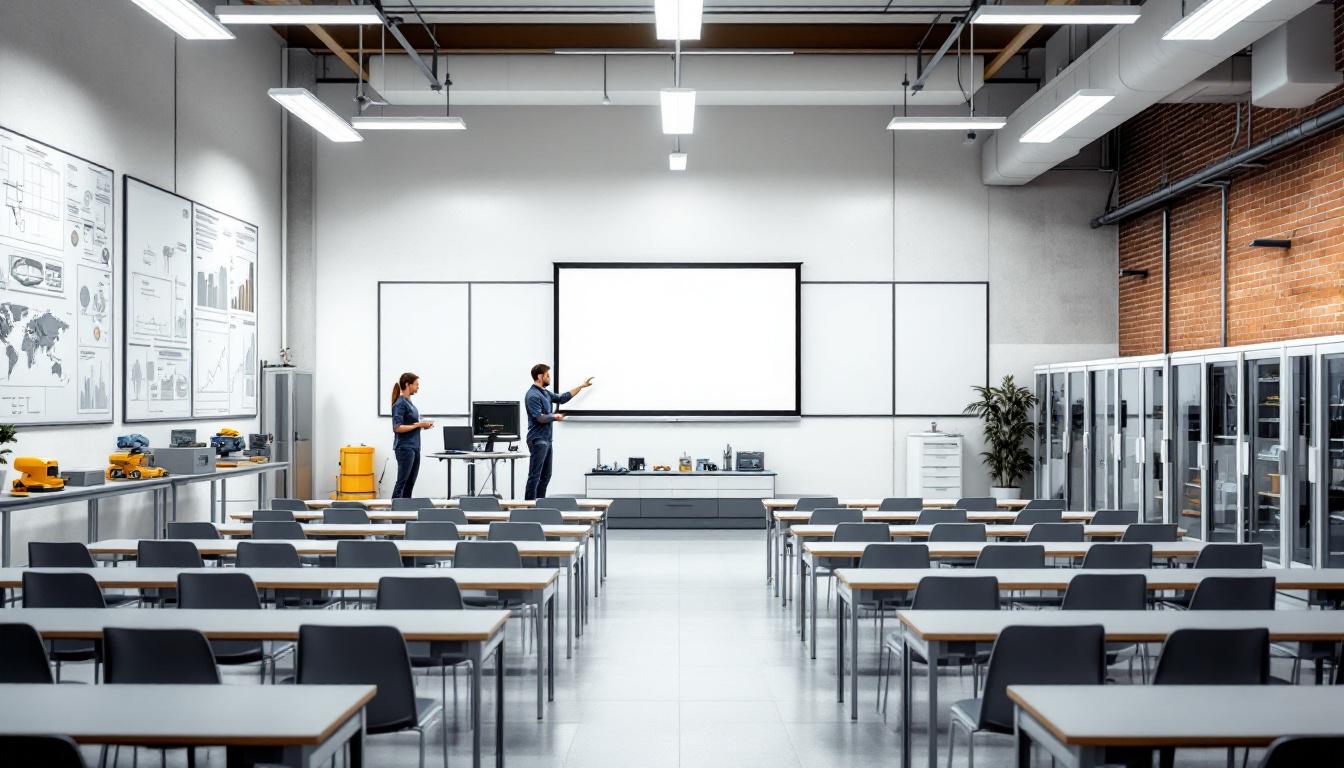
About Madison County Detention Center
Community safety and offender rehabilitation converge through systematic processes at Madison County Detention, where evidence-based practices guide daily operations in Canton, Kentucky. This correctional facility operates within the broader framework of Kentucky's detention system, implementing structured approaches to inmate management that typically emphasize both security protocols and support services. The facility's operational methodology centers on processing individuals through various stages of detention while maintaining connections to community resources and family support networks throughout the region.
Comprehensive programming approaches at this KY correctional facility may include educational opportunities, substance abuse counseling, and vocational training designed to address underlying factors contributing to criminal behavior. The detention center typically coordinates with local agencies and service providers to ensure continuity of care, particularly for inmates requiring specialized medical attention or mental health services. These evidence-based interventions often focus on skill development and behavioral modification techniques that support successful community reintegration.
Located within Madison County's administrative framework, the facility serves as a crucial component in the local criminal justice system, processing individuals at various stages of legal proceedings. Inmates services generally encompass basic necessities, healthcare provisions, and visitation programs that maintain family connections during detention periods. The facility's approach to offender management typically incorporates risk assessment protocols and individualized case planning, reflecting contemporary corrections practices aimed at reducing recidivism while ensuring public safety throughout the Canton area and surrounding communities.
Programs & Services
Personal transformation through structured learning opportunities forms the cornerstone of rehabilitation efforts within Madison County Detention in Kentucky. The facility's comprehensive approach recognizes that meaningful change occurs when inmates are provided with diverse pathways for intellectual, professional, and emotional growth. Through carefully designed interventions, participants can address underlying challenges while simultaneously building the skills necessary for successful community reintegration.
Educational advancement serves as a fundamental pillar of the facility's development-focused services. Inmates may access education services that encompass basic literacy instruction through advanced academic preparation, with GED preparation programs helping individuals complete their secondary education requirements. Furthermore, college correspondence courses typically provide opportunities for higher learning, allowing motivated participants to pursue post-secondary credentials during their incarceration. These academic offerings often include structured study periods and educational support to maximize learning outcomes.
Complementing the educational framework, vocational programs may offer practical skill development in areas such as plumbing, providing inmates with marketable trades upon release. The facility often includes comprehensive therapeutic services addressing substance abuse treatment and dual diagnosis treatment for those managing co-occurring mental health and addiction challenges. These support services typically employ evidence-based methodologies to help participants understand the root causes of their behaviors while developing healthy coping strategies and relapse prevention techniques essential for long-term recovery and successful community reentry.
Daily Life & Visitation
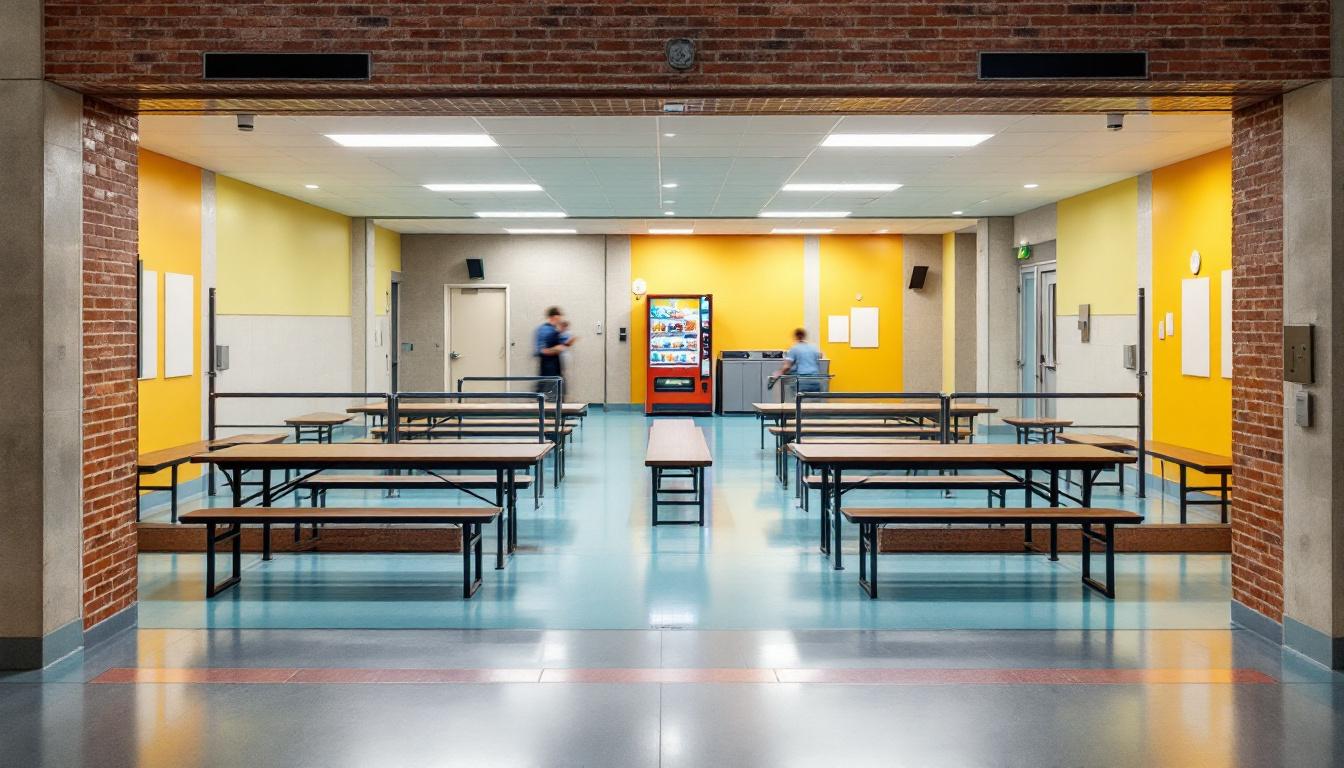
The concrete walls and steel doors of Madison County Detention create a controlled environment where every aspect of daily life unfolds within clearly defined boundaries and security protocols. Today, inmates navigate a structured routine that consistently begins with early morning counts and meal service, followed by housing unit assignments that dictate much of their daily movement and activities. The facility typically maintains order through regular scheduling that provides inmates with predictable patterns, helping them adapt to the institutional setting while serving their time.
Living accommodations generally consist of shared cells or dormitory-style housing units, where inmates must learn to coexist in close quarters with limited personal space and belongings. Furthermore, the dining arrangements typically involve scheduled meal times in common areas, where inmates gather for breakfast, lunch, and dinner served according to housing unit rotations. Although personal property remains restricted to essential items and approved commissary purchases, inmates usually adapt by developing routines around available recreational opportunities, which may include television viewing areas, library access, and designated exercise periods in outdoor recreation yards or indoor common spaces.
Structured programming schedules often provide inmates with work assignments throughout the facility, such as kitchen duties, cleaning responsibilities, or maintenance tasks that help maintain daily operations. Additionally, visitation policies generally allow for scheduled family visits and phone calls, which provide crucial connections to support systems outside the facility walls. Although communication options may include video visitation or traditional in-person visits depending on security levels, these family connections typically serve as important anchors that help inmates maintain relationships and prepare for eventual reintegration into their communities.
Ready to Connect?
Start communicating with your loved one today
Search for an Inmate
